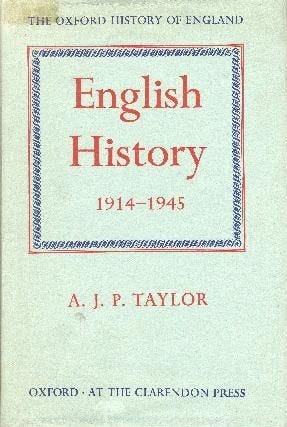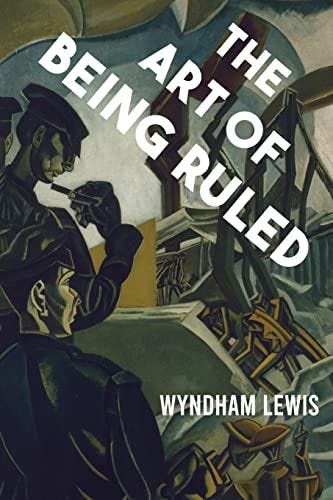THE STRANGE DEATH OF LIBERAL DEMOCRACY
How it came to this
This is an extract from chapter five of my book, A Brief History of Liberal Democracy.
Today I look at where the liberal idea came from, what it replaced, and why it has come to nothing.
Contents:
Liberal England before World War One
The Strange Death of Liberal England
Culture as Counterfeit
Liberal Belief - Utility and Liberal Chauvinism
Whigs and Tories - the pre-liberals
Leading to Nothing - the void of the liberal ideal
The fact that the system which rules us is neither liberal nor democratic is becoming widely appreciated these days.
Of course, it was designed as such - being the rule by an elite by means of the mass manufacture of belief. Our culture has been replaced by an advertisement for an economics without borders, in which we are simply components to be replaced by cheaper ones.
This is the reason everything in life is a sort of transaction. Every aspect of life is commodified, and while we are here our purpose is to service this economy by shopping.
Yet it was not always like this. In its birthplace, England, there was a Liberalism and a liberal way of life. These two things were not the same, with both giving their name to the counter-civilisational machine which replaced them.
LIBERAL ENGLAND BEFORE WW1
AJP Taylor is a historian so interested in presenting rather than making a case that his portraits of the past are now seen as dramatically revisionist.
It is a sign of the triumph of the system which replaced English liberty that a passage like this could read as astonishing.
Until August 1914 a sensible, law-abiding Englishman could pass through life and hardly notice the existence of the state beyond the post office and the policeman…
He could travel abroad or leave his country forever without a passport or any sort of official permission.
He could exchange his money without restriction or limit. He could buy goods from any country in the world on the same terms as he bought goods at home. For that matter a foreigner could spend his life in the country without permit and without informing the police…
All this was changed by the impact of the Great War…The state established a hold over its citizens which though relaxed in peace time, was never to be removed and which the Second World War was again to increase.
The history of the English people and the English State merged for the first time.
AJP Taylor, English History, 1965
In his 2014 book “The English and their History” Robert Tombs points out what England means.
The later terms “Britain” and the “Yookay” are the new pronouns for the dominant culture of the Home Nations, and so when we read this in today’s Spectator1 we should think of England and the liberty it long championed.
“Britain used to be the country that understood liberty. Now it is exporting censorship and importing diplomatic humiliation.”
This Spectator article is about how the state in England is trying to enforce censorship on American companies. It is a story about the transition from a culture of liberty to the use of the liberal state to restrict it - in order to preserve the “liberal democratic” system.
Like the rest of this chapter, it is also a story about how liberal democracy was always a contradiction in terms, being a long-form argument with the hard limits of reality.
How did it come to this?
THE STRANGE DEATH OF LIBERAL ENGLAND
Did the English know what they had lost? Yes. in 1935, George Dangerfield’s The Strange Death of Liberal England lamented the end of the England that Taylor describes, replaced by bureaucracy and the new values of the modernising society it invented as a means of efficient management.
Dangerfield’s book is said to be right in spirit if wrong on the details. Tombs finds its “declinism” overcooked - but correct in the view that post-1914 England was quite unlike that which went before.
Not only did this see the demise of the Liberal Party, but the construction of a new social “reality” through mass media, as the architecture of the modern state replaced that of the old liberties.
The minds of men were being managed into a stage set for the performance of the New Utopia, where liberties would be taken in the service of progress.
COUNTERFEIT CULTURE
The American Catholic TS Eliot was also wise to this ruse. As James Matthew Wilson pointed out, Eliot had one of his characters say in 1928,
“We know too much, and are convinced of too little2.
Our literature is a substitute for religion - and so is our religion”.
Wilson says this leads Eliot to the conclusion that
“Culture was a counterfeit”.
In the strict sense that culture cannot furnish Man with the meaning he requires to live by, this is always true.
Eliot, like St Bernard of Clairvaulx before him, is reminding us that culture - whether low or high - cannot replace God, but only indicate Him. Today, our mass culture is a bargain in which we exchange something for nothing - and that something is the meaning of everything.
In the sense of our argument it is important to note that the “liberal democratic” idea is to do precisely this: to replace all the old meaning with what it supplies itself.
Six years before Eliot’s reminder, Walter Lippmann published Public Opinion, which argued for the creation of a “pseudo-environment” in the imaginations of the ruled, as a means of managing the new liberal democracies.
1928 was the year in which Edward Bernays published his “Propaganda” - effectively a manual on how to construct a false reality in the public mind.
Even if you believe you have no use for God you will have noticed that we inhabit a social and political culture which is often openly anti-reality. It contradicts the truth - not only of traditional belief and custom - but also of the basic realities of human difference. This is no accident.
The liberal democratic project is a war on civilisation, with victory to be secured by a complete transvaluation of our values, and the transition of the public sense of reality from the real to the “pseudo environment” of mass produced culture.
As Wyndham Lewis argued, the First World War functioned as a violent revolution which demolished the old ways of being and seeing. He described post-1914 Britain as a “transitional society”. He saw in it the foreboding and momentous opportunity for the management of change by means of the “technique of industry” - including the business of make-belief.
Of course, this change begins and ends with an argument with reality itself, expressed in practice by the legal and social privileging of beliefs which not only countermand the facts, but ultimately deny that there can be facts at all.
This is called “rational”, and it is done to create the best of all possible worlds - one that does not really exist at all. An efficient Utopia, which would make everywhere a nowhere in its own imagined image.
A BRIEF HISTORY OF LIBERAL BELIEF
The liberal democratic system is an extension of ideas which long preceded it, and the idea that culture - be that football or fine art - can provide ritualised purpose to mankind really took off in the work of Matthew Arnold.
From Arnold’s 1869 writings on “Culture and Anarchy” we get the phrase “Sweetness and Light”. He used it to refer to beauty and to intelligence, and explained how his belief in these qualities, nurtured by culture, could exceed the limitations of the (Puritan) religion of the founders of America.
“Notwithstanding the mighty results of the Pilgrim Father’s voyage…souls in whom sweetness and light were eminent…
…do not let us fail to see clearly that their idea of human perfection is narrow and inadequate, and that the Dissidence of Dissent and the Protestantism of the Protestant religion will never bring humanity to its true goal”.
In Arnold we find the champion of the liberal idea as we live it today: a zelotic mission of self belief which believes it has no limits. It is believed to be a panacea for all humanity, and therefore must replace all others with itself.
The Whigs, who did away with Rome, were in Arnold’s mind hampering human potential. Well into the 19th Century, divisions in English politics were more over ideas of God than of Man. The liberal democratic century would change all that.
Yet the sweetness of mass culture has sickened mankind, and its light was not the new dawn imagined by the titans of Liberty.
I include the griftline as these Monday posts are for paid subscribers. Thank you for supporting my work. This book is being written because you pay me.
If you have no money, email me (put “SKINT” in the header) and I will let you in.









